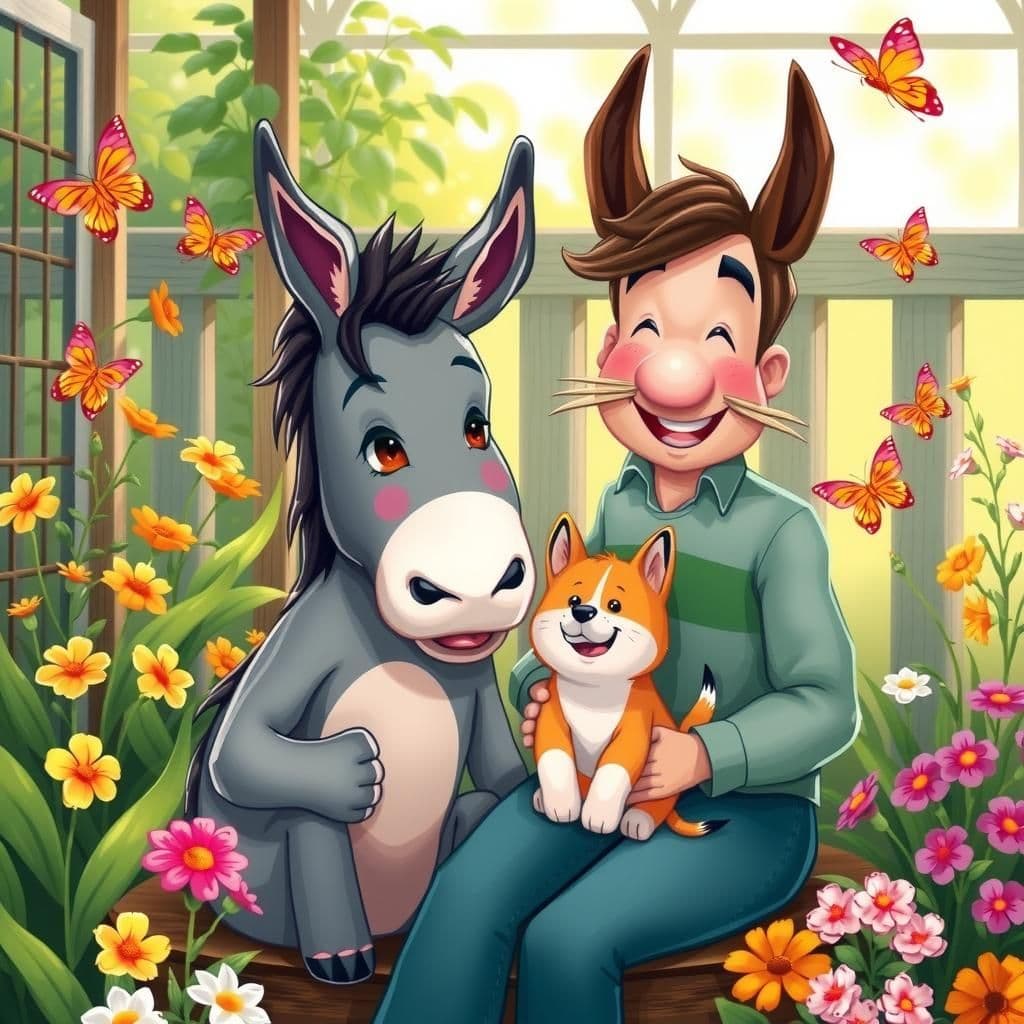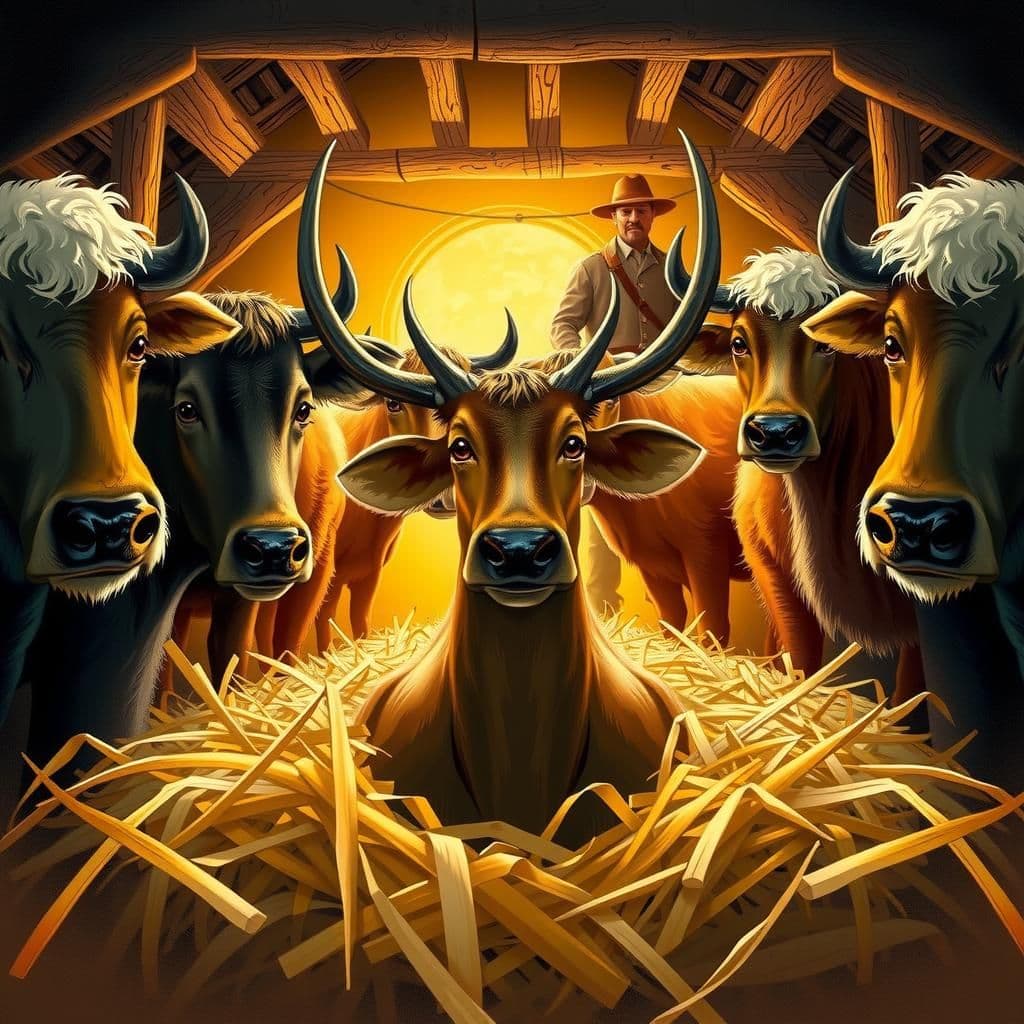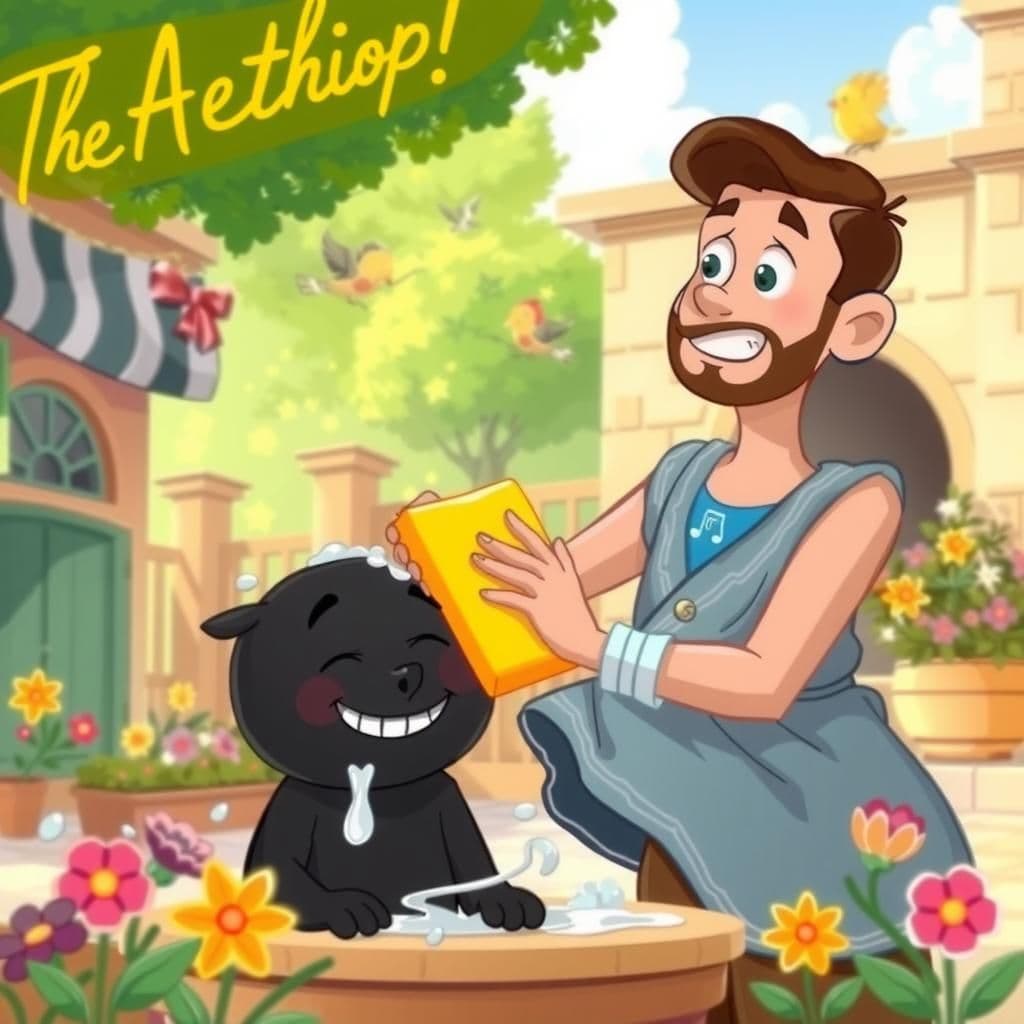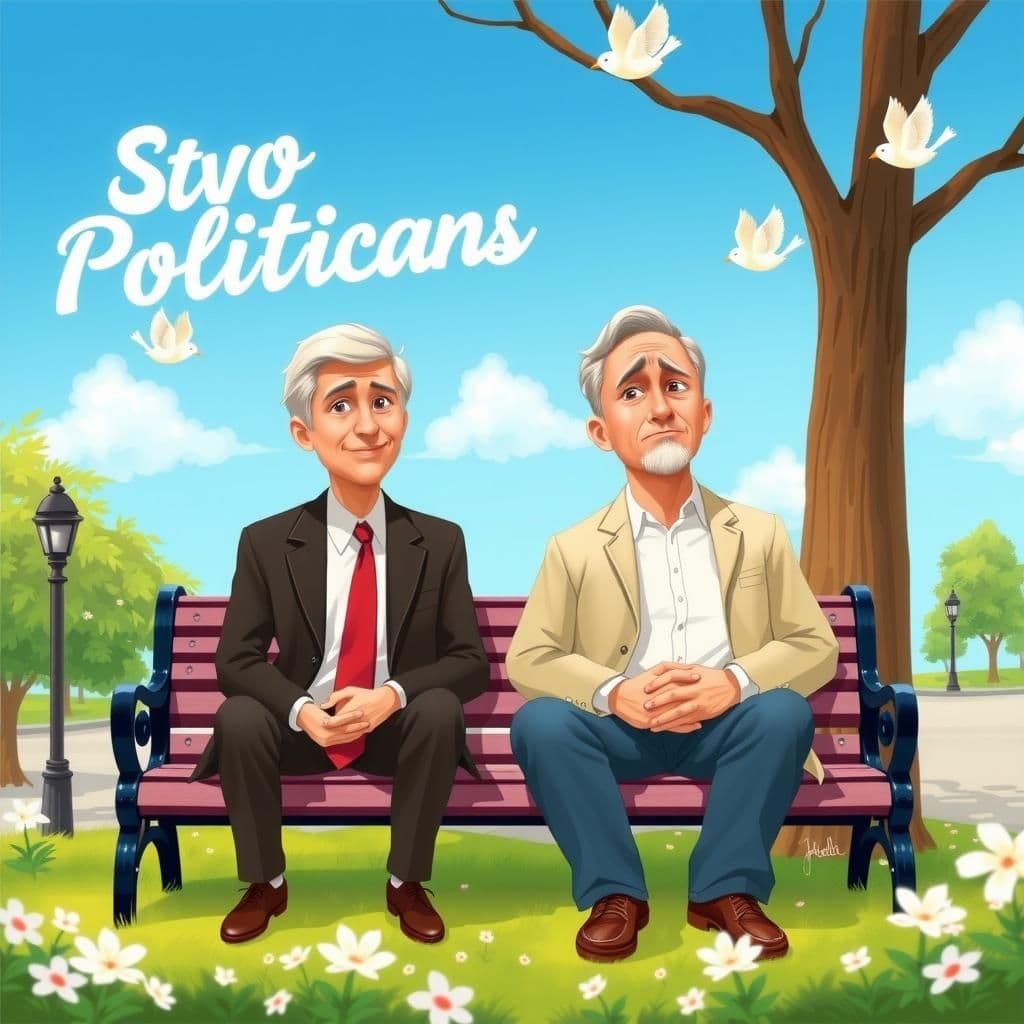The Donkey and the Lapdog
In "The Donkey and the Lapdog," a donkey envies the lapdog's affectionate bond with their master and tries to mimic its behavior to earn love, only to face punishment for his clumsiness. This heartwarming moral story teaches that one’s unique talents cannot be forced or imitated, reminding readers that true gifts are inherent and should not be overshadowed by the envy of others. As one of the engaging short stories with moral lessons, it serves as a valuable reminder for students about the importance of self-acceptance.

Reveal Moral
"The moral of the story is that one should embrace their own unique talents rather than attempting to imitate others, as not everyone possesses the same abilities or charm."
You May Also Like

The Master's Eye
In "The Master's Eye," a stag seeks refuge in an oxen stable, promising the oxen valuable information about pastures in exchange for their secrecy. Despite their initial support, the stag is ultimately discovered by the overseer, leading to his demise, which highlights the importance of vigilance and the consequences of misplaced trust. This impactful moral story serves as a cautionary tale, reminding readers of the timeless lessons found in the top 10 moral stories and short stories with moral for adults.

The Aethiop
In "The Aethiop," a man naively purchases a black servant, believing that his skin color is simply dirt that can be scrubbed away. Despite his relentless efforts, the servant's complexion remains unchanged, illustrating the life-lesson that inherent traits cannot be altered by external means. This short story with moral serves as a poignant reminder that what is bred in the bone will stick to the flesh, making it a compelling addition to uplifting moral stories and fable stories with moral.

Two Politicians
In "Two Politicians," a short tale with moral undertones, two politicians reflect on the elusive nature of gratitude in public service. One yearns for citizen appreciation, while the other cynically observes that such recognition can only be achieved by leaving politics. Ultimately, they share a moment of understanding and decide to be content with their positions, humorously swearing to accept their access to public funds, illustrating the moral lesson found in many famous fables.